How Kidsuper's Colm Dillane Went from Math Major to Streetwear Sensation
In our long-running series "How I'm Making It," we talk to people making a living in the fashion and beauty industries about how they broke in and found success.
Known for his artsy prints and innovative fashion shows, Colm Dillane, KidSuper founder and designer, started making shirts in high school, trying to create something cooler than Supreme (in its heyday). Screen printing on Gildan T-shirts snowballed into selling clothes in college and building a brand he didn't necessarily foresee in the early days, especially without connections in the industry.
"I had no idea where it was going and no idea what it would do," says the New York-based designer. "The more fashion I did, the more something else came from it. Now, it's like the best calling card for any idea ever."
His menswear pieces are known for being easy to wear, regardless of gender identity. KidSuper faux leather handbags mirror the kissing motif found on puffer jackets, where the closure traces the outline of meeting faces. Dillane maintains a kid-like wonder across his designs and his approach to business, which is why, he told Fashionista, getting the opportunity to design for Louis Vuitton earlier this year, was so "amazing," yet "unexpected."
Dillane is now nominated by the CFDA for the 2023 Best Menswear Designer award. Ahead, he outlines his career journey from studying math to building KidSuper, getting in trouble in college and joining the official Paris Fashion Week calendar.
What was your relationship like with fashion growing up?
Fashion definitely didn't feel like it was a possible profession at all. I don't know if I saw it as fashion. More so, I would wear things to make me stand out a little bit or be a little different. I've always been someone who has not followed too many rules or wanted to be unique or stand out. When skinny jeans were popular, as a kid, I wore baggy jeans. When baggy jeans got popular, I wore skinny jeans. I would spray paint on my clothes and stuff like that, but it was never, like, 'Oh, fashion is a thing.' It was more like... the brand is called KidSuper, and everyone has their own super hero costumes. I definitely didn't know that it was possible or even remotely possible, especially since no one I knew was involved in fashion, let alone my parents.
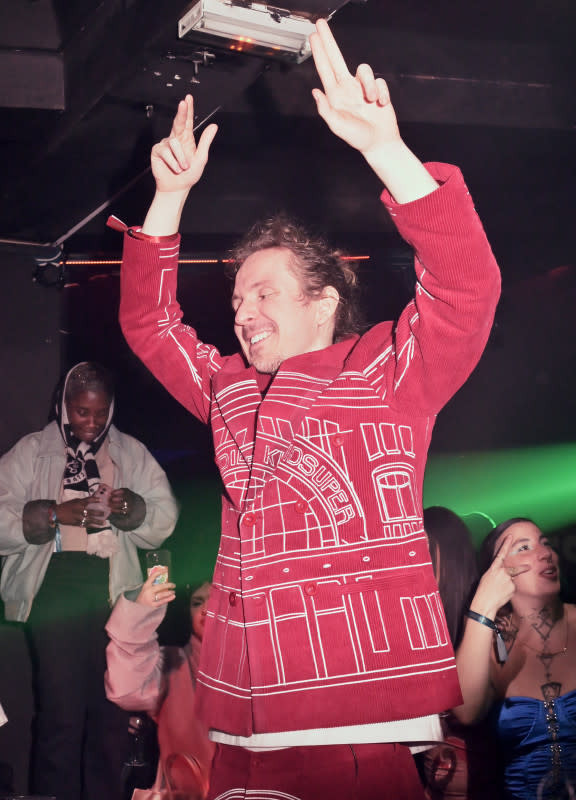
Photo: Foc Kan/Getty Images
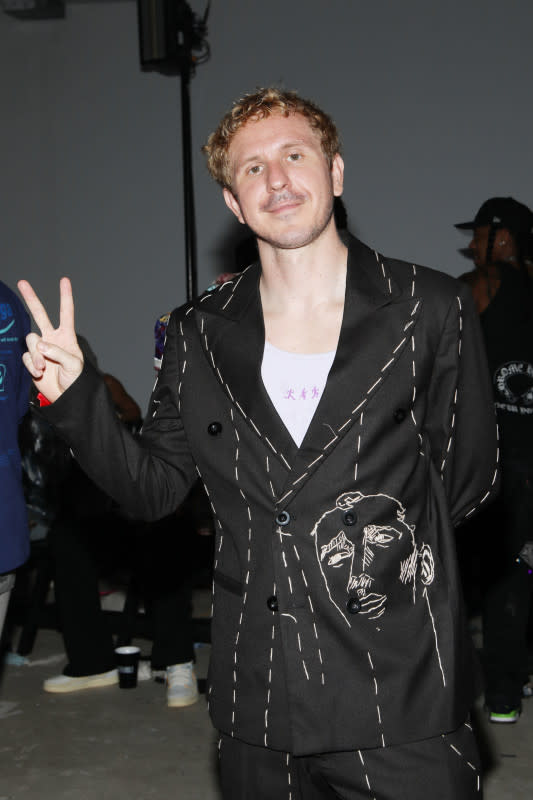
Photo: Udo Salters/Getty Images
You moved around a lot as a kid. Did you feel like it gave you freedom in expressing yourself more because maybe you weren't going to be around these kids as long?
I think it was a good mentality that came from that, which was like, 'I'm here for whatever amount of time, and I'm going to make the most of it.' I try to do that with KidSuper now where it is a fashion brand, but I'm trying to make the most of it.
I read that you started making shirts in high school. Did that help you realize you wanted a career in fashion?
One, I was always good at drawing. Two, I had just lived in Wisconsin, and when I landed, everyone was like, 'Where's your Supreme? Where's your 10.Deep? Where's your Mishka? Where's all these brands?' I knew nothing about it. I wasn't from New York. I was living in Mexico and all these different places. But I love the idea of a brand bringing people together and becoming a thing that people nerd over... and creating this group of people that knew the most about a specific brand.
I was like, 'Okay, let me go to all these stores.' I remember I was 12 or something, and I went to Supreme and was really a curious kid. I kept asking questions, and they basically were like, 'Shut up or buy.' And I was like 12 or something, and I looked eight, and I remember being like, 'What the fuck? I'm just here to potentially buy a T-shirt from you. You should be treating me like a king.' And I remember being like, 'Fuck you guys. I'm going to go make my own.' And that was kind of the start of everything.
I thought, I can do this. I could make this T-shirt. Initially, I would spray paint on it with stencils. From there, what I really loved about fashion was it was introducing me to everyone in my high school. I started meeting new kids. Again, I was the kid who moved a lot and didn't have day-one friends. So, I was like, 'Oh man, now I'm meeting people.'
Something that fascinates me is that you studied math in college. What made you pick that? Has it served a purpose?
I was always good at math. My mom would do art projects with me. My dad would do math drills with me growing up. When I went to high school in New York City... there was this specialized high school that you had to test in... I went to one of them in Brooklyn, and they're famously math and science high schools. So, I majored in math in high school, and when I went to college, I deferred for a year to go play soccer in Brazil. When I went back to college, I was like, Oh, I'll do math again, and then I can do all these auxiliary projects, like minored in film, minored in computer science and art.
I finished in three years, and there were definitely moments where I was like, 'Do I drop out of college?' I had a store. But my parents were like, 'No.' And I was like, 'Alright.'
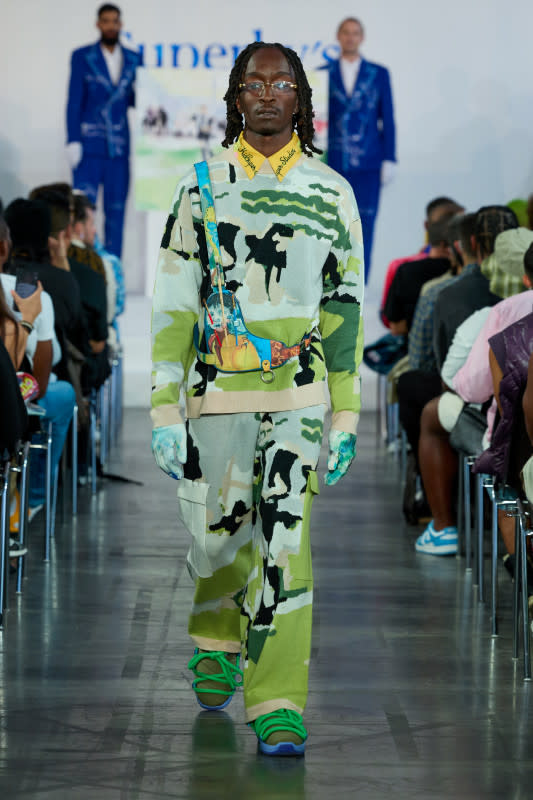
Photo: Peter White/Getty Images

Photo: Peter White/Getty Images
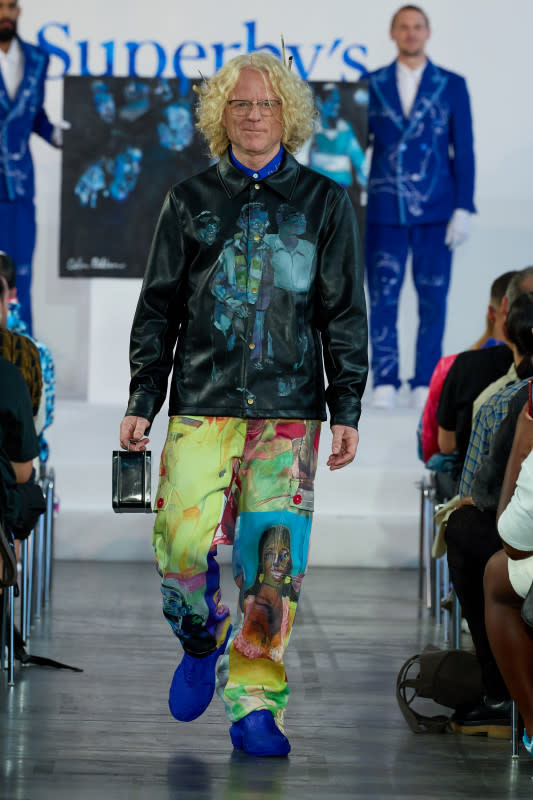
Photo: Peter White/Getty Images
You opened that store mid-college, which is no small feat. How did you make that happen?
Basically, I found a store on Craigslist, and it was very affordable, and the fifth or eighth image had a bathtub, so I was like, "Holy shit, I could live here." That was really all I was looking for: Could I live in this store?
The lease that I did end up signing was in South Williamsburg, which was a growing neighborhood, and right next to Mishka at the time. It had a basement, a storefront and a little backyard. The top two floors a year later ended up moving out, so I told all my friends to move in. So there was a lot of magic that happened in that building that I can't take too much credit for.
It was a risk that I took, and I was in college, so during college you can kind of fail. Nobody was expecting me to succeed or even do that at such a young age, so I took the risk, and it ended up being a really good idea.
In our age now where e-commerce is very big, [people think] you don't need a physical location and all this stuff. But for me, the physical location, what it did for KidSuper, was it made it very real. It was a physical embodiment of my ideas. And so I remember someone was talking to my mom and they were like, 'When did you think this KidSuper thing was real?' And she was like, 'I always thought it was a joke until he got the space.'
Is it true, right before creating the store, you were kicked out of your dorm room?
I converted my college dorm room into a storefront where I had racks of clothing. I spray painted the walls. I removed the door so that it fit everything. Then, the dean of housing wrote me up. Technically, it says 'damage of room' and then 'business for profit' and some vandalism thing. I was like, 'Okay, let me meet with them.'
I dressed up in a suit and had a PowerPoint presentation. I was trying to pitch why I should be the face of housing and why they should give me a bigger room. They were like, 'What the fuck are you talking about, Colm? If you don't remove this, you're getting kicked out of the dorm.' And then I slightly removed it, but built it in a closet, and they were like, 'What are you doing?' I never got [officially] kicked out.
What has kept you going out on your own versus designing for another brand?
Well, one, nobody was asking me to design another brand for a very long time. Then all of a sudden, Louis Vuitton asked me... LV made things feel possible. You're a fish out of water there. Everyone that was in the office had worked at all the top brands: Dior, Bottega Veneta, Chanel. Everyone had a crazy resume. Many of them went to Central Saint Martins, so I was intimidated a bit when I walked in.
Then when I got there, I realized that because I did so much alone, I was kind of a master at a lot of things that not everyone is because they have to focus on specific things. I think they were very impressed that I could not only draw, but I could also Photoshop, illustrate, ideate and direct films. So then you're like, 'Wait, I could do this.' Now, would I do it for a brand? Potentially, if the brand made sense.
I really wasn't thinking about it... not because I'm humble or have no plan. I really just wasn't expecting it. I guess I thought it was a little early. Not that I haven't been working hard, but I'm young.
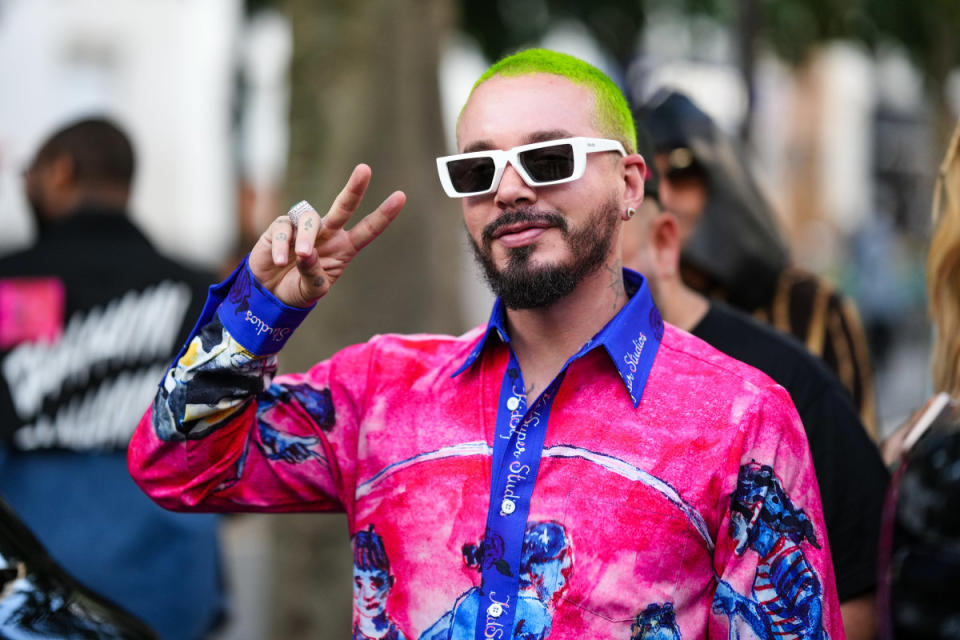
Photo: Edward Berthelot/Getty Images
What do you feel like has made you the designer you are, whether it's self-studying or mentorship?
I never had mentorship. Now, I have a little bit of mentorship because of the projects that I've done and the people I've worked with. New York City definitely helped. New York City high school is kind of a fashion degree because you have to stand out, and fashion is such an important aspect of being cool, which is kind of lame to say, but it's very true.
I was looking at the landscape of all of fashion and streetwear, and everyone felt like they were copying each other. And I was like, how do I stand out in this world? I don't have the best manufacturing. I don't have the best resources, so my main thing was, at least I'll draw on the clothes. You might not like it, but it'll be my original art. The worst thing they could say is, 'it sucks,' but they can never say I copied anyone because it's literally my art.
Were there any failures or really hard times that you had to get through?
One of my friends was talking who has a brand. They got ghosted by a collaborator, and I was like, 'Oh yeah, that happens all the time.' There are so many things that went wrong that I just brushed off because I was just so happy to be doing what I was doing. I had to remind myself of the bad things that happened to make this person feel better.
I had a very optimistic approach. I still do. I had no expectations for myself of what this was supposed to become, and I wasn't arrogant. I was very much like, 'Oh my God, this is amazing.' If stuff didn't work out, I was like, 'Stuff shouldn't work out. This is a fucking hard thing to do.' I was very accepting of shit going very, very wrong.
That sounds like a stoic approach.
I think that mentality made it, when things went wrong, fun. And when things went right, I was more shocked.
From the early days to what it's grown into, how do you see KidSuper within the broader menswear world?
I wasn't in college like, I can't wait for my first Paris Fashion Week collection. I didn't even think that was possible. But what I remember is sitting down thinking what's cool about high-end fashion — or whatever you want to call it — is that there are no creative limits. These fashion shows were bizarre and wild and, some, incredibly creative. I felt like there was somewhat of a limit on what you were allowed to do if you were considered a streetwear brand at the time. But all of that's changing. I loved what streetwear was, which was this amazing community building project.
I always say this: I wasn't searching for a successful brand or clothing company. I was searching for a community of like-minded people that I could collaborate with and open up different opportunities. I realized early on that clothing was the best art form to meet new people that I was good at. Unfortunately, I'm not a good singer. Maybe I could have been Justin Bieber, but I'm a horrible singer, so clothing is my next option.
What would you say are some of the biggest achievements so far?
Getting on the Paris official calendar is pretty crazy. Louis Vuitton was unbelievable and still a complete shock to be the only guest designer ever. That's pretty crazy. Opening up this building in Brooklyn... it's under construction now, but it's 10,000 square feet. I'm talking to a structural engineer as we speak to build a soccer field on the roof.
Some of the collaborations have been great. I love the projects that I've been able to do through collaborations with Puma. I did a cartoon series, which was amazing. With fashion week, I did a pilot episode of a TV show. Now, I'm repped by Hollywood agents because of KidSuper. It's all very positive and fun. I'm still as giddy about the stuff as I was 10 years ago. I'm maybe more giddy because there's more opportunities now.
Now, I need more people, and that's my main problem. It's just trusting or finding people. I was doing so much shit alone that I have issues with doing that because I never worked at a fashion company.
What makes you say "yes" to a collaboration?
It's pretty hard for me to say no most of the time. Maybe if the brand doesn't fit exactly what I like or doesn't seem artistically fulfilling... but there's still always a positive. I'm still always introduced to new people, and financial benefits come with collabs, which can support and fund other creative projects that you're trying to do.
You're nominated for the CFDA Awards' best menswear designer. How does that feel?
I think what's funny is I always considered myself such an outsider, and now I'm like, 'could you be more insider?' So that's pretty funny. You're always thinking they'll never honor you, understand what you're doing or give you credit for the stuff you've done, and then all of a sudden, people start honoring. I still feel pretty underdog, or at least, I feel I'm doing it my way.
This interview has been edited and condensed for clarity.
Please note: Occasionally, we use affiliate links on our site. In no way does this affect our editorial decision-making.
Want the latest fashion industry news first? Sign up for our daily newsletter.

